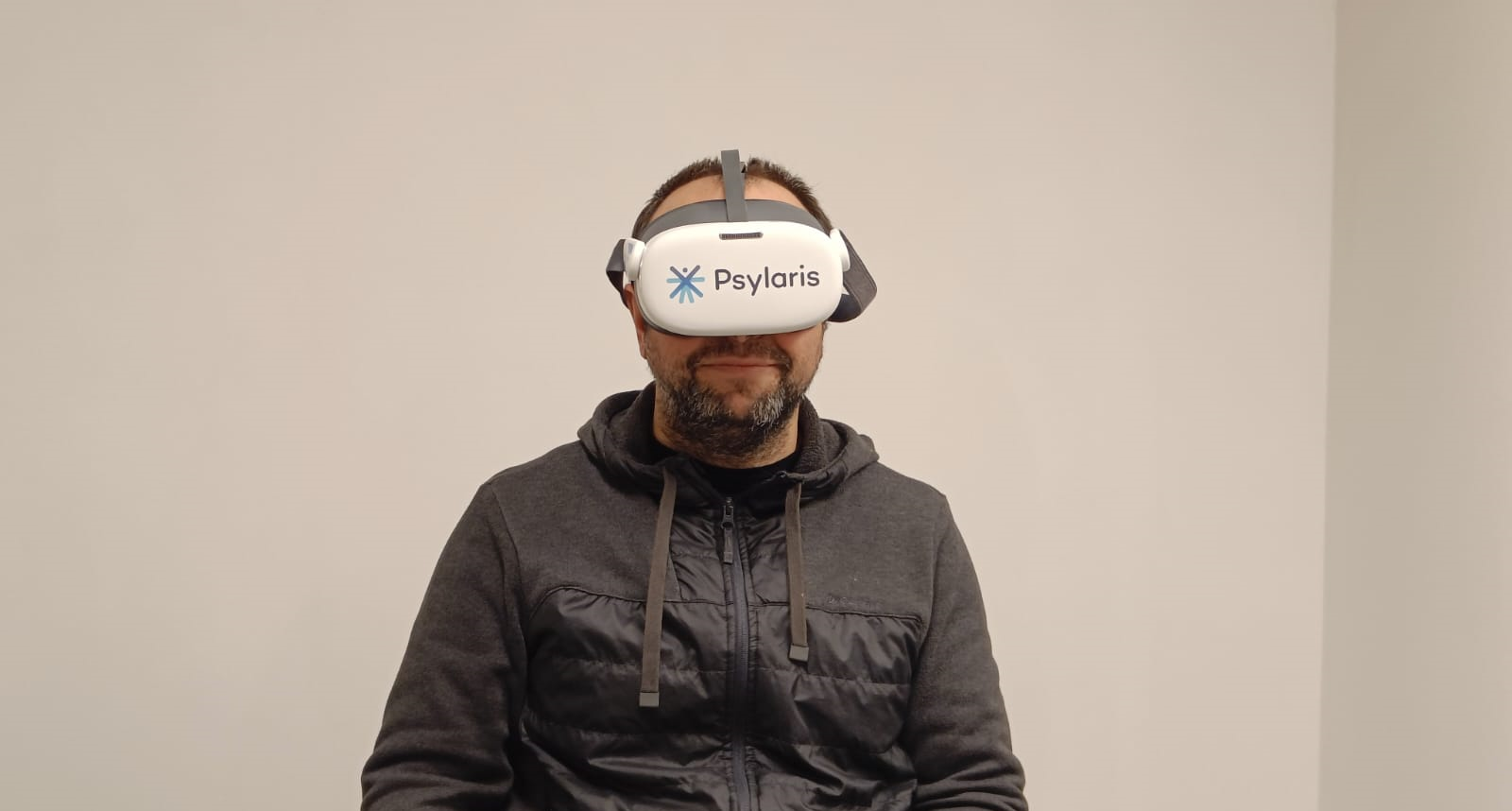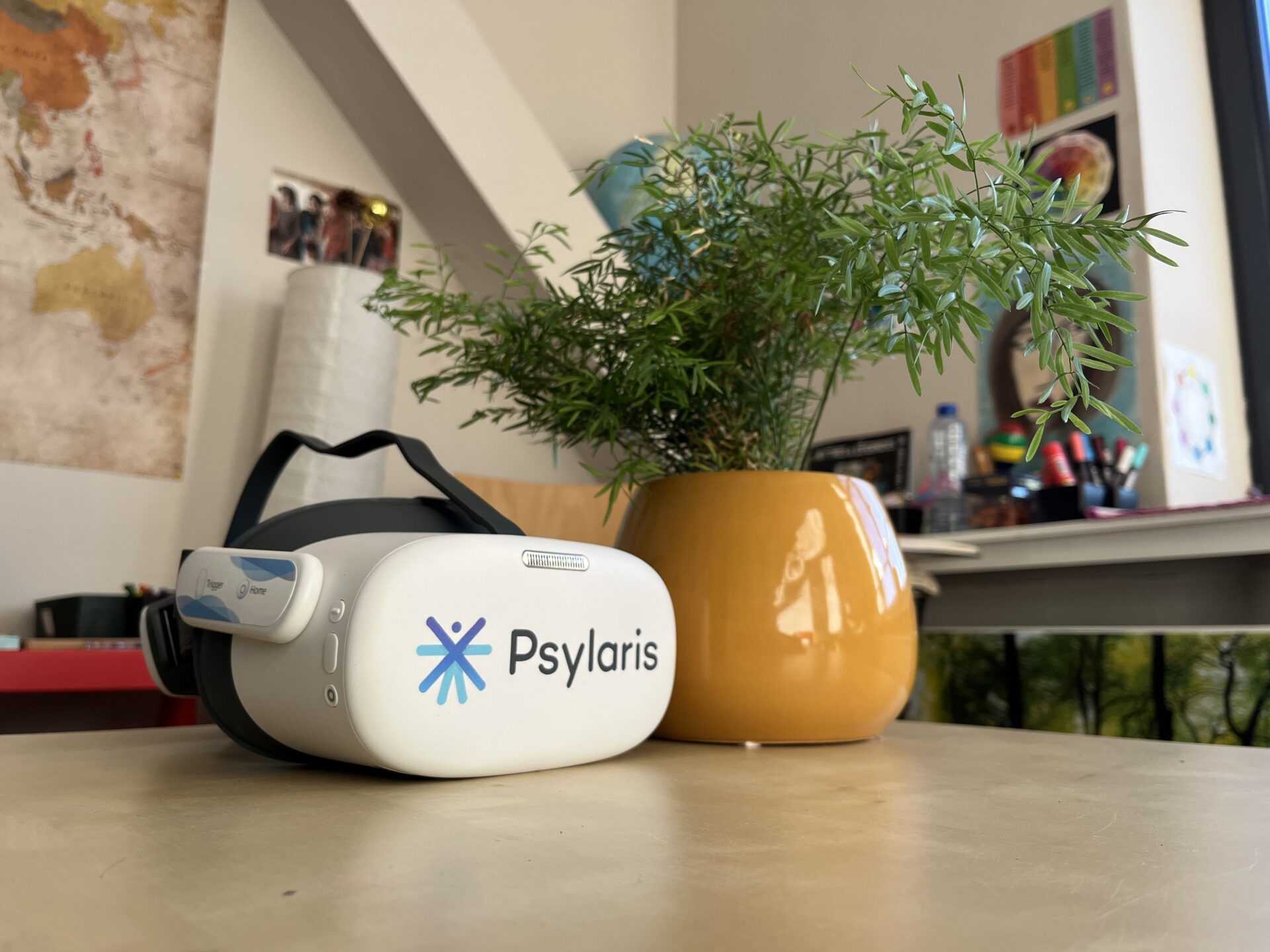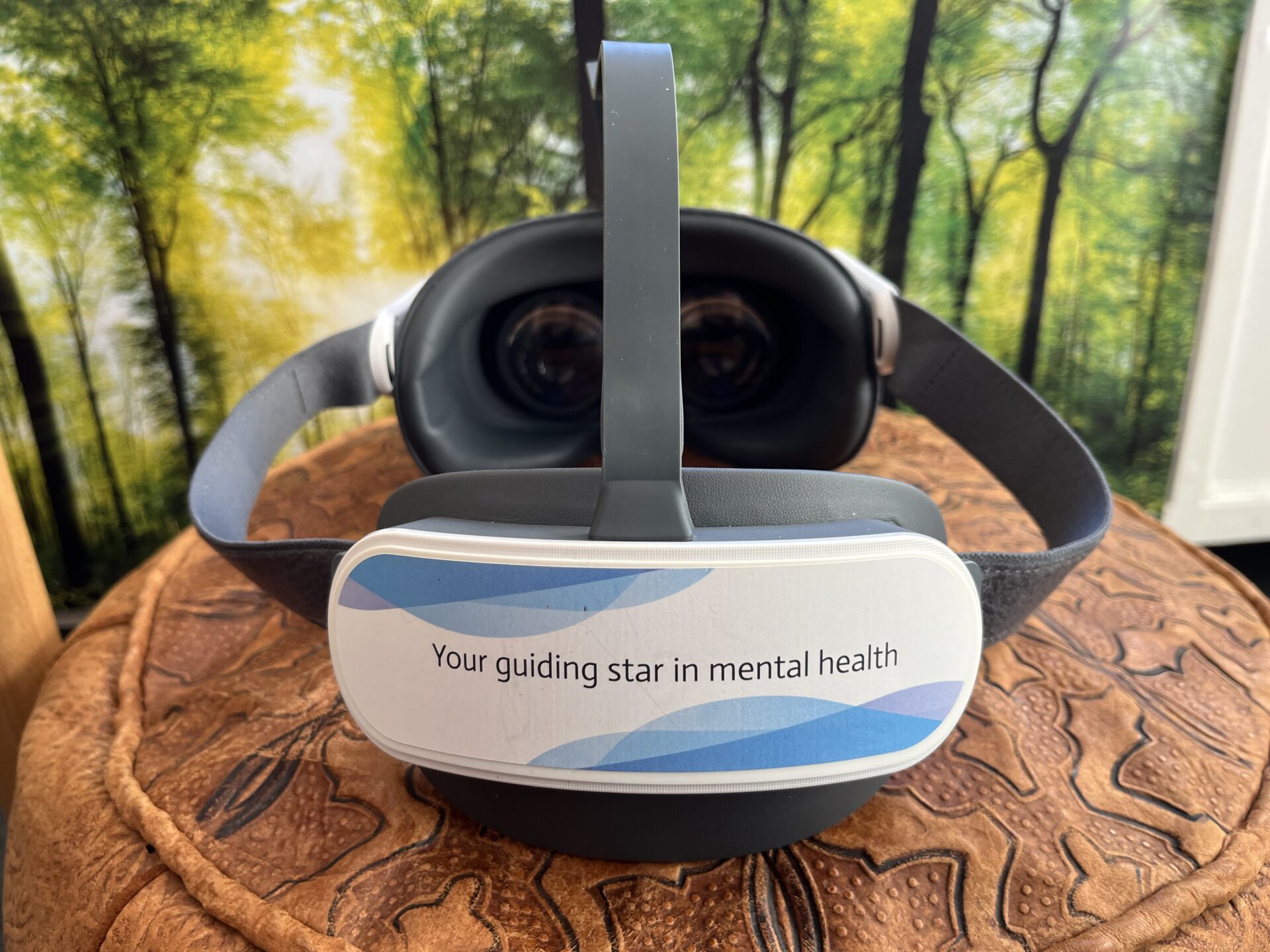Solentra develops virtual reality headset for EMDR

Solentra is currently developing a virtual reality headset that allows clients to independently follow an extra EMDR session in between sessions with their psychologist. This speeds up their progress and facilitates a faster recovery.
When wearing the VR glasses, clients enter a virtual world, guided by a voice. During the session, the application adapts to their reactions using intelligent software.
With this headset, EMDR treatment can take place in between appointments with the psychologist as well, increasing the frequency and number of treatments. After a virtual session, there is always a follow-up discussion with the treating psychologist and an interpreter.
Solentra ensured that all virtual sessions are culturally sensitive, just like our in-person sessions. The application works with many icons as well, making the sessions accessible to low-literacy users.
Solentra is developing the glasses together with Psylaris, a software developer with ample experience in mental healthcare
“Calming and clear”
In early 2022, our Arabic interpreters and a number of clients tested the first demo version in Arabic. Their feedback was extremely positive. They experienced the environment they entered with the VR glasses as calming. The tasks they were given were clear and easy to perform. Sammy Mahdi, then State Secretary for Asylum and Migration, also visited and tested the headset.
In late 2023, Solentra received the first VR glasses in Arabic and Pashto. “We are now reviewing these sentence by sentence together with our interpreters. In early 2024, we will put them to use in Antwerp and Limburg,” says Catherine Pauwels, clinical psychologist.
“First, we will use the glasses together with the client. Then, they can come to our office in between supervised sessions to follow a session with the VR glasses independently.”
What is EMDR?
Eye Movement Desensitisation and Reprocessing (EMDR) is a trauma treatment in which the client is asked to recall traumatic moments. Feelings, thoughts and physical sensations associated with that moment are also retrieved. Therefore, EMDR can be quite confronting.
While the trauma is being recalled, the client is distracted by a hand gesture from the therapist or a sound. This strains working memory, making it easier to repeatedly recall the trauma and decrease the emotional and physical response to it each time.

